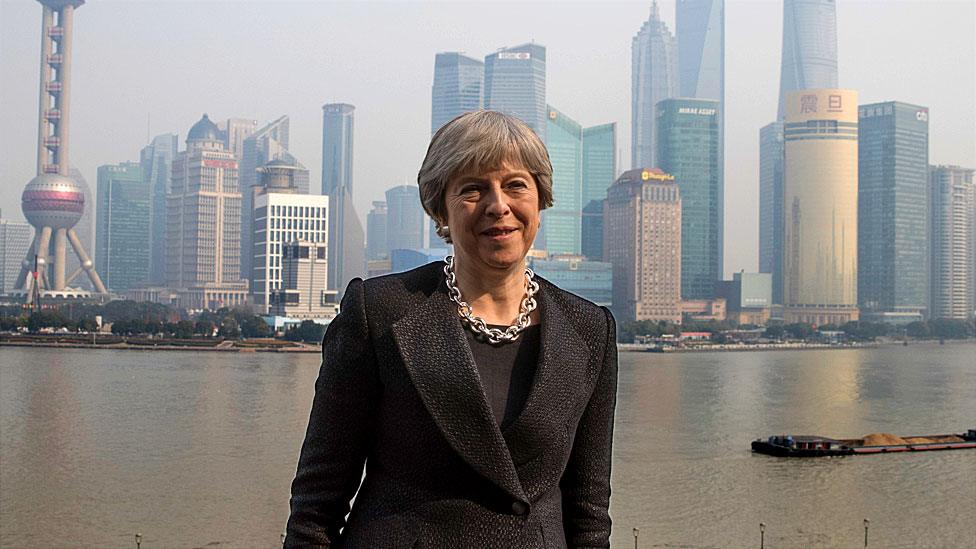Downing Street insists UK will leave customs union
- Published
- comments
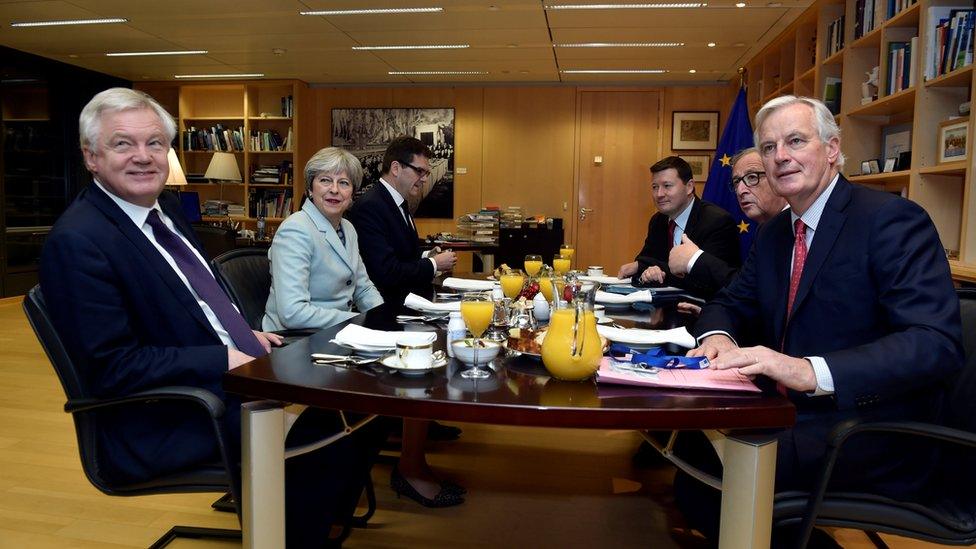
David Davis and Theresa May will meet Michel Barnier this week
Downing Street has insisted Britain will leave the EU customs union after Brexit amid claims of Tory disunity over the UK-EU future relationship.
Theresa May has faced calls to spell out what she wants from the talks ahead of the UK's departure in March 2019.
In a customs union the UK would have tariff-free trade within the EU, but would lose the ability to strike its own deals with other countries.
It comes ahead of a meeting with the EU chief negotiator Michel Barnier.
The prime minister and Brexit Secretary David Davis will meet Mr Barnier ahead of the next round of negotiations getting under way.
Later, talks between officials will focus for the first time on the transitional period planned for after Brexit.
Potential sticking points include citizens' rights, with the UK insisting EU nationals arriving during this time should not have the same rights as those who arrived before Brexit day.
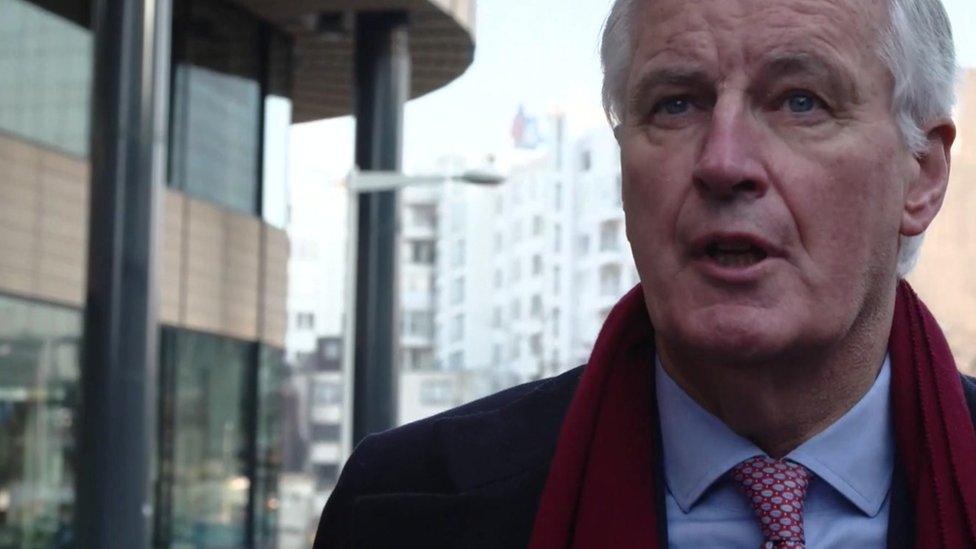
Mr Barnier, who is on his way to London, said he wanted to "accelerate" his schedule of meetings
As he set off for London, Mr Barnier said there was "not a moment to lose" in order to secure a deal before the end of the year.
Asked about the UK's position on the customs union, he said Downing Street's "red lines" would be respected but the UK must respect the "rules of the union".
How close the UK will remain to the EU's single market and customs union has been a topic of debate among leading Brexiteers and some of those closest to the prime minister.
Conservative MP Kwasi Kwarteng, who is an aide to Chancellor Philip Hammond, suggested the latest statement on the customs union was "perfectly consistent" with what No 10 had been saying all along, given that Mrs May had been "pretty clear" in her January 2017 Lancaster House speech the UK would be leaving.
MP Kwasi Kwarteng tells Today a border in Northern Ireland doesn't have to be "hard"
Pressed on how he squared this reality with Mr Hammond's stated desire for the UK and EU to move "very modestly" apart in terms of trade, he told BBC Radio 4's Today that "being modestly apart does not mean you have to be in a customs union".
He said the government had to make it clearer its core aim was a free trade deal with the EU.
On Sunday Eurosceptic Tory Bernard Jenkin accused the government of being "vague" and "divided", saying Chancellor Philip Hammond was not sticking to the approach put forward by the prime minister.
Home Secretary Amber Rudd - who was a leading figure in the Remain campaign - played down the divisions in the cabinet, telling the BBC's Andrew Marr Show on Sunday: "I have a surprise for the Brexiteers, which is the committee that meets in order to help make these decisions is more united than they think."

Future options?
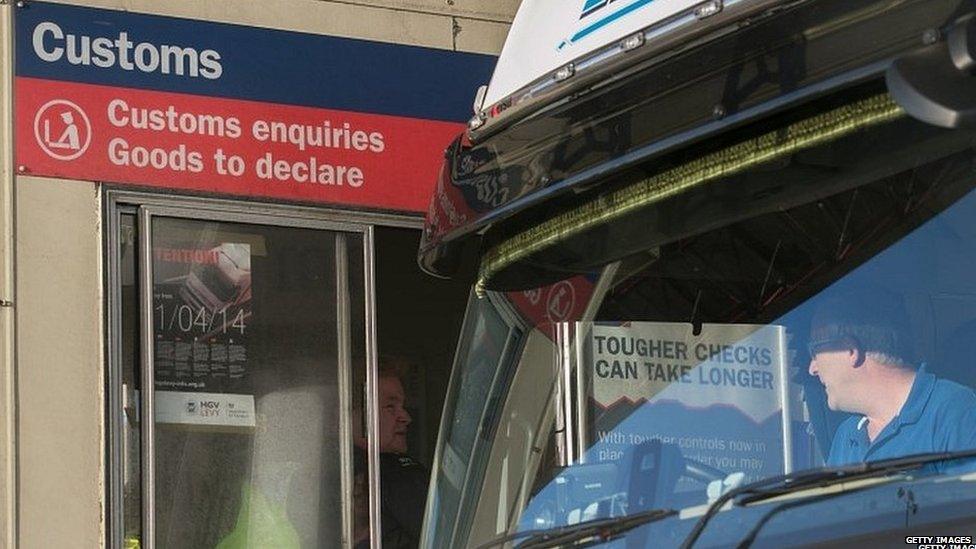
In a position paper published in August, the UK set out two potential options for future long-term customs operations.
A "partnership" arrangement would see the UK "align precisely" with the EU in terms of imports and exports, removing the need for any customs checks between the two.
The UK would continue to operate its own checks on goods coming from outside the EU - and safeguards would be needed to prevent goods entering the EU that had not complied with its rules.
An alternative scenario would involve the UK extending customs checks to EU arrivals but under a "highly streamlined arrangement" to minimise disruption at ports and airports.
This would seek to make the existing system of customs checks "even more efficient", for example using number plate recognition technology at ports, which could be linked to customs declarations for what the vehicles are carrying, meaning the vehicles do not have to be manually stopped and checked.

Ms Rudd said they agreed on the need for "frictionless trade", the ability to strike international trade deals and to avoid a hard border in Ireland, hitting back at those who question whether such a deal can be secured.
"We want to have a bespoke agreement," she said. "Now we're not going to surrender before we have that battle."
She said Mrs May - who will chair a meeting of the 10-strong Brexit cabinet sub-committee on Wednesday and Thursday - had an "open mind" on how customs will be managed after Brexit.
Amber Rudd says Jacob Rees-Mogg should not have accused Treasury of fiddling figures
Quizzed on what the model might look like, she said she was "not intimidated at all" by critics' warnings about customs unions membership.
Labour said it was "foolhardy" to rule out any kind of customs union with the UK's largest trading partner.
"The government must put jobs and the economy first, not their own internal party wrangling," a party spokesman said.
- Published4 February 2018
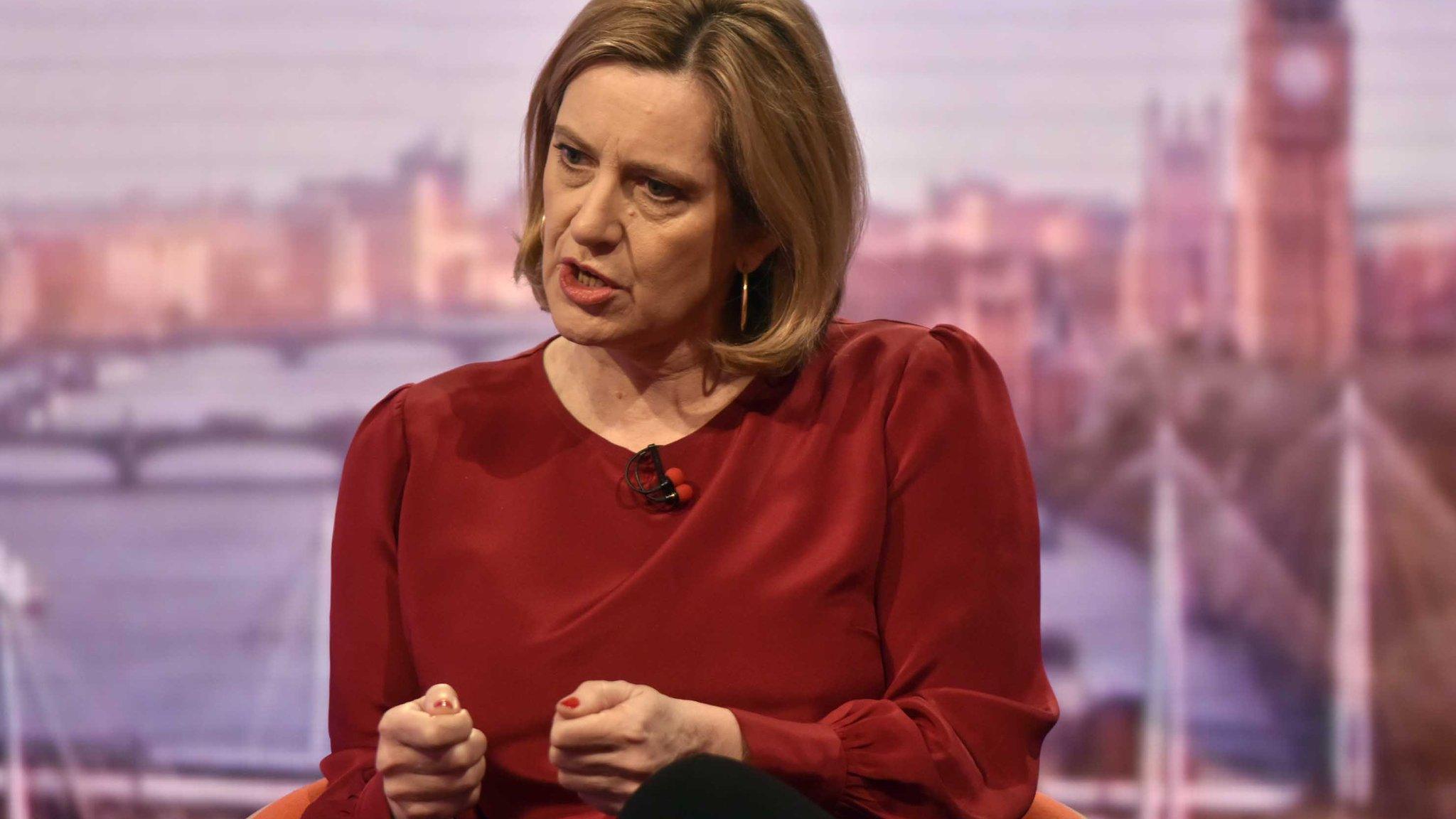
- Published30 December 2020

- Published6 November 2017
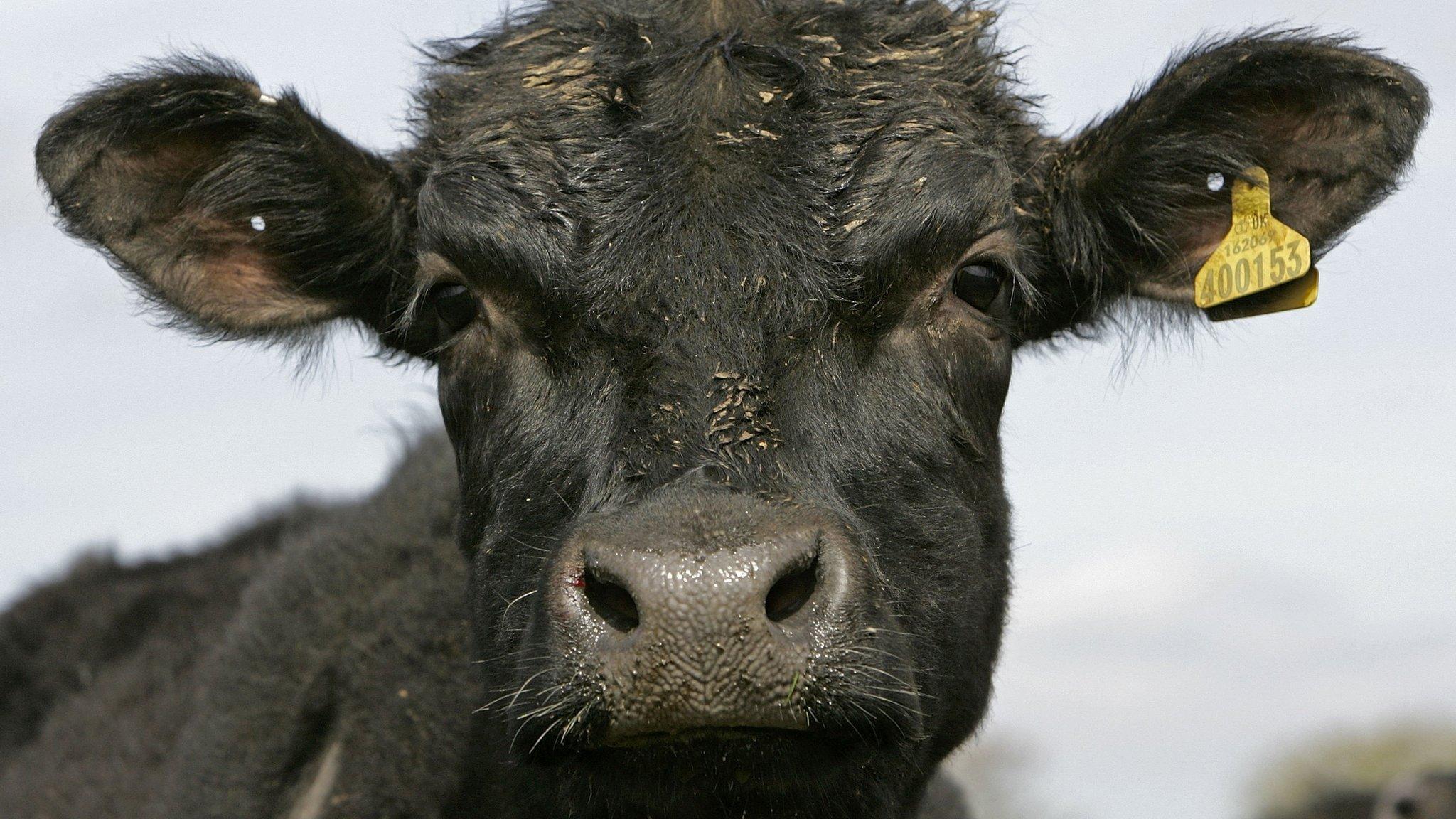
- Published2 February 2018
